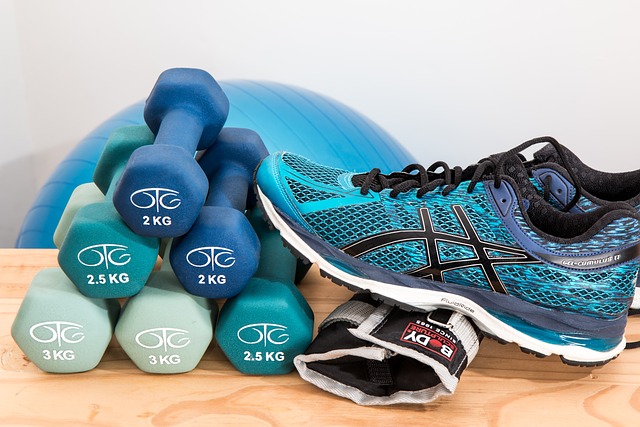A robust wellness plan for strength encompasses a variety of exercises and practices that not only build physical strength but also enhance mental resilience. Core strengthening exercises are fundamental, supporting all movements and protecting the spine while fortifying the abdominal, back, and pelvic regions to improve posture and balance. These exercises lay the groundwork for advanced resistance training plans, which target specific muscle groups to foster overall muscular development and the body's adaptability to stress. Incorporating yoga for strength into your routine is highly beneficial, as it promotes flexibility and heightens body awareness, complementing physical fitness routines by fostering muscular endurance and aiding recovery. Emotional strength practices like meditation and yogic breathing techniques offer additional mental clarity and emotional regulation benefits, which are crucial for maintaining focus during resistance training and enhancing the overall workout experience. A holistic approach to strength wellness combines these physical and mental components into comprehensive strength-building programs that cater to individual needs and support both physical and mental health, leading to a balanced and sustainable fitness regimen.
Embarking on a journey towards optimal wellness demands a multifaceted approach that harmonizes strength and flexibility. This article delves into the integration of strength training and flexibility within comprehensive wellness plans, offering insights into crafting effective strength-building programs that incorporate core and resistance training. We explore how physical fitness routines can be enriched through yoga, not just as a passive stretching exercise but as a dynamic practice that fortifies both body and mind, enhancing mental resilience strategies. Furthermore, we discuss the benefits of embracing holistic strength wellness, which goes beyond physical exercises to include emotional strength practices, thereby fostering an all-encompassing approach to health and vitality.
- Integrating Strength Training and Flexibility for Comprehensive Wellness Plans
- Crafting Effective Strength-Building Programs with Core and Resistance Training
- Enhancing Physical Fitness Routines through Yoga for Strength and Mental Resilience Strategies
- Embracing Holistic Strength Wellness: Combining Exercise, Flexibility, and Emotional Strength Practices
Integrating Strength Training and Flexibility for Comprehensive Wellness Plans

Embarking on a wellness plan that incorporates both strength-building programs and flexibility training can yield significant benefits for overall health and performance. Core strengthening exercises form the foundation of physical fitness routines, enhancing stability and supporting daily activities. By integrating resistance training plans into your regimen, you not only build muscle but also improve bone density, which is crucial for preventing osteoporosis. Yoga for strength, a practice that combines muscle engagement with mental focus, can be particularly effective in promoting holistic strength wellness by fostering both physical and emotional strength practices. It encourages a mindful approach to exercise, which can enhance mental resilience strategies and contribute to a more balanced lifestyle.
A comprehensive wellness plan should consider the synergistic relationship between muscle development and flexibility. Regular engagement in yoga for strength not only increases range of motion but also aids in recovery by reducing muscle tension and preventing injuries. This dual focus on building strength and maintaining flexibility ensures that individuals can perform at their best, whether they are engaging in athletic activities or daily tasks. Additionally, the emotional benefits of a holistic approach to strength training, such as yoga, can lead to improved mental health, contributing to a well-rounded sense of wellbeing that is essential for long-term success in any physical fitness routine.
Crafting Effective Strength-Building Programs with Core and Resistance Training

Incorporating core strengthening exercises into your wellness plans for strength is a pivotal aspect of any comprehensive strength-building program. A robust core supports all movements and protects the spine, enhancing overall physical fitness routines. Integrating these exercises not only fortifies the abdominal, back, and pelvic regions but also contributes to improved posture and balance, which are essential components for advanced resistance training plans. Yoga for strength, particularly poses that require core engagement, can significantly bolster your strength-building endeavors by promoting flexibility and body awareness, which in turn supports mental resilience strategies. This holistic approach to strength wellness ensures that the mind and body work in harmony, fostering an environment where emotional strength practices can flourish alongside physical prowess.
Moving beyond the conventional, a well-rounded strength-building program should include resistance training plans that cater to various muscle groups. By utilizing a combination of free weights, resistance bands, and bodyweight exercises, individuals can target specific areas for growth while maintaining overall muscular development. This multifaceted approach not only enhances physical capabilities but also contributes to the body’s adaptability and ability to withstand stress, which is a key aspect of mental resilience strategies. Embracing this holistic perspective on strength training ensures that your wellness plans are both effective and sustainable, allowing for continued progress in your physical fitness routines.
Enhancing Physical Fitness Routines through Yoga for Strength and Mental Resilience Strategies

Integrating yoga into strength-building programs can significantly enhance holistic strength wellness plans. Yoga for strength is not merely about flexibility but also involves power-generating poses that engage and strengthen the core, contributing to overall physical fitness routines. These asanas challenge the body in various ways, promoting a balance between muscular endurance and recovery. Moreover, core strengthening exercises within yoga practice can bolster one’s foundation for both strength training and daily activities, leading to improved stability and performance.
Mental resilience strategies are also a cornerstone of comprehensive wellness plans for strength. The focus on breath control in yoga not only improves lung capacity but also fosters mental clarity and emotional regulation. This mind-body connection can enhance concentration during resistance training plans, allowing for better execution of exercises and greater mindfulness throughout the workout. By adopting these mental resilience strategies, individuals can cultivate a more resilient mindset, which is as critical as physical strength in overcoming plateaus and achieving long-term fitness goals. Emotional strength practices, such as meditation and yogic breathing techniques, complement the physical demands of strength training, creating a well-rounded approach to wellness that addresses both the body and the mind.
Embracing Holistic Strength Wellness: Combining Exercise, Flexibility, and Emotional Strength Practices

Integrating strength-building programs with flexibility training and mental resilience strategies is a cornerstone of holistic strength wellness. A comprehensive approach to fitness not only enhances physical capabilities but also fosters emotional strength. Core strengthening exercises, such as planks and deadlifts, form the foundation for both physical resilience and stability, essential components of a robust wellness plan for strength. These exercises, when combined with yoga for strength, can improve posture, joint health, and overall body control, which in turn supports mental focus and emotional balance.
Incorporating resistance training plans that challenge the musculoskeletal system while also engaging in flexibility practices like dynamic stretching ensures a balanced physical fitness routine. This synergy allows for better range of motion, reduced injury risk, and increased performance in both strength-centric activities and everyday life. Emotional strength practices, such as mindfulness meditation and positive affirmations, complement the physical aspects of wellness plans for strength by promoting cognitive flexibility and emotional regulation, contributing to a more holistic approach to health and longevity.
Incorporating both strength training and flexibility into your wellness plans is a robust approach to achieving comprehensive physical and mental well-being. By integrating core strengthening exercises and resistance training plans within your fitness regimen, individuals can build a strong foundation for their health, enhancing not just muscle mass but also overall resilience. Yoga for strength emerges as a pivotal practice, offering a harmonious blend of physical exertion and mental focus to bolster one’s endurance and emotional strength practices. These strategies collectively form the cornerstone of holistic strength wellness, positioning individuals to navigate their health journeys with balance and adaptability. Embracing this multifaceted approach can lead to a more fulfilling and robust lifestyle, where physical fitness routines complement the mind-body connection for a well-rounded approach to wellness.
